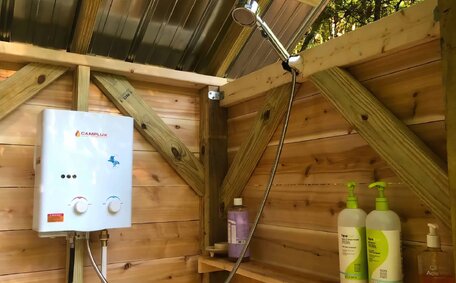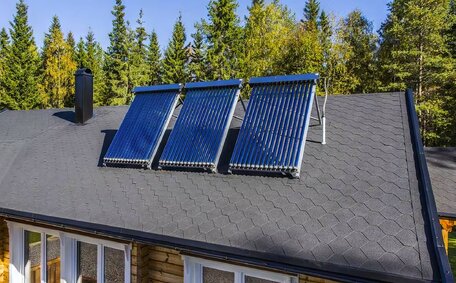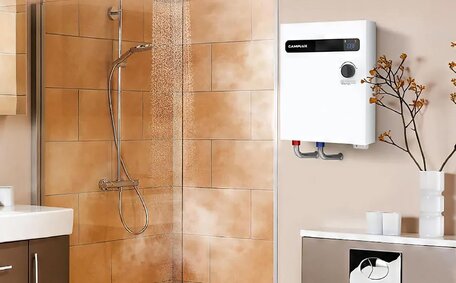Health Risks of Lead Exposure from Deteriorating or Old Pipes
Ingesting lead, even in small amounts, from deteriorating pipes can pose serious health threats. This toxic metal contaminates water through old lead pipes or solder, with long-term exposure leading to significant harm.
Children are particularly vulnerable to deteriorating pipes because lead impedes brain development and may result in neurological impairment. Adults face increased risks of high blood pressure and kidney issues.
As pipes age, corrosion allows lead to leach into the water supply. Replacing lead pipes is the best solution but can be extremely costly. Relining sewer pipes is a cost-effective solution that reinforces and seals pipes, eliminating the need for complete replacement.
The 'no dig’ pipe relining process, inspired by trenchless technology, involves inserting an epoxy resin liner into the existing pipe. The relining task can be completed to bond to the inside of your sewer pipe, preventing lead leaching. Compared to complete pipe replacement, relining is less invasive, quicker, and more cost-effective.
Sewer relining also protects against future corrosion and leakage.
We strongly advise using Sydney pipe relining services for pipe maintenance to mitigate the risk of lead exposure. If you have older pipes that may contain lead, we would recommend pipe relining in Sydney homes as the safest and most affordable option to ensure clean, healthy water.
Dangers of Asbestos in Crumbling, Old Piping
Asbestos exposure poses significant health risks, especially when pipes containing asbestos start deteriorating. Asbestos was commonly used as insulation in older pipe systems before being banned due to safety concerns.
Disturbed asbestos pipes can emit fibres into the air, posing severe health risks if inhaled. Long-term asbestos exposure greatly increases your risk of serious diseases like mesothelioma, asbestosis, and lung cancer.
Pipe relining offers a safer fix to asbestos pipes, avoiding replacement. The epoxy resin seals and strengthens existing pipes, preventing the release of asbestos fibres. Relining also reduces the need for invasive demolition, lowering asbestos exposure risks during repairs.
If you have outdated plumbing that may contain asbestos, we would highly suggest addressing issues before pipes degrade further. Engage professional services to inspect and reline your pipes, as deteriorating insulation or flaking materials often signal the presence of asbestos. Get faulty sections relined right away.
Don’t put your health at risk by allowing crumbling asbestos pipes to go unaddressed. Pipe relining in Sydney enables homeowners to circumvent asbestos exposure risks and ensure a revitalised, leak-free plumbing system. Contact us today to find out more about this proven method for managing all your ageing plumbing systems safely.
How Corroded Pipes Can Lead to Contaminated Drinking Water
Corroded pipes significantly endanger drinking water quality. As an old pipe or galvanised pipes age, corrosion causes the interior surface to deteriorate. This corrosion allows contaminants to enter the water supply from a damaged pipe.
Corroded pipes can contaminate water with toxic heavy metals such as lead, iron, and cadmium. Bacteria and chemicals can also seep in through fractures and holes in damaged pipes. These contaminants can be ingested, posing a threat to your plumbing system and causing major health concerns.
Restricted water flow and tree root intrusions are serious warning signs of underlying pipe issues. Neglecting corroded pipes without seeking a pipe relining service inevitably leads to total failure, whereas a relined pipe ensures longevity.
Regular maintenance reduces the risk of broken pipes and contamination without constant repairs. However, pipe relining can help restore corroded pipes to a like-new condition. Our pipe relining solutions apply a protective epoxy barrier that seals out contaminants and prevents further corrosion damage.
Avoid allowing corroded pipes to jeopardise your family’s health or harm your home. Book an inspection with Cranebrook Plumbing today. If corrosion is detected, we can quickly reline your pipes, providing clean, safe drinking water once again.
Benefits of Pipe Relining vs Full Pipe Replacement
Homeowners often consider full pipe replacement as the sole remedy for old, damaged plumbing until they are introduced to the advantages of pipe relining. Pipe relining presents an immense benefit, providing a practical alternative to complete pipe removal and replacement.
The pipe relining process involves inserting an epoxy resin liner into the existing pipe which coats the interior. After curing, it creates a smooth and continuous new lining, fortifying structural integrity and warding off future root incursions, thereby eliminating leak concerns. This no dig’ trenchless method is less invasive, faster, and more affordable than traditional methods of digging up your yard to replace sewer stormwater pipes.
Consider the following key advantages of pipe relining:
- Minimal excavation - Only small access points for drain relining to insert the liner are needed, avoiding major property damage.
- Less disruption - Household utilities stay connected, your property stays liveable, and your drains remain unobstructed.
- Enhanced flow - Smooth interior improves water flow and drainage.
- Cost effective - Pipe relining your structure can be far more cost-effective than other traditional full pipe replacement.
- Durable - Epoxy liner lasts 50+ years.
- Faster installation - Cured in just 2-3 hours.
- Versatile - Effective for all pipe materials and configurations.
In most cases, pipe relining outperforms full replacement. Contact Cranebrook Plumbing to learn if relining is the best solution for your plumbing problems. Our trenchless sewer repair methods provide long-lasting repairs without the mess and upheaval of conventional pipe replacement projects.
DIY Pipe Epoxy vs Professional Relining - How to Choose
To reduce expenses, some homeowners might attempt DIY epoxy fixes on deteriorating pipes. However, for broken pipes, professional pipe relining typically emerges as the smarter option.
DIY epoxy kits enable internal pipe coating with epoxy resin. While cheaper upfront, DIY repairs require significant preparation and labour. The success of DIY repairs heavily relies on your plumbing expertise and skills.
In contrast, pipe relining conducted by our skilled technicians was very precise, ensuring a meticulous level of care and was very professional in execution. Technicians ensure correct resin application and curing, creating a durable, seamless epoxy barrier inside pipes.
Here’s why you should choose professional relining:
- Technicians expertly apply resin for effective and quality pipe repairs.
- Professional relining cures in 2-3 hours, unlike the 24-hour curing period for DIY jobs.
- Professionals employ robotic tools for comprehensive repairs, even in hard-to-reach pipe sections.
- Versatility - Professionals can reline any material like PVC, cast iron, clay, etc.
- Warranty - Professional relining comes with a solid year guarantee, ensuring pipes can last up to 50 years of reliable service.
Avoid the dangers of DIY mishaps by choosing Cranebrook Plumbing’s professional pipe relining services for reliable, enduring repairs. Contact us today to learn more!
Why Routine Pipe Maintenance and Inspection is Critical
Regular maintenance and inspection of your pipes is critical to avoid costly emergency repairs down the line. Just like caring for your car with routine oil changes and tune-ups, inspecting and maintaining your plumbing helps identify and address minor issues before they escalate.
It is sensible to conduct biannual pipe inspections. Inspect exposed pipes for signs of leaks, corrosion, and structural damage.
For subterranean pipes, seek out wet patches or soil depression, which could signal a leak. Inside, ensure pipes under sinks and appliances are free of drips or moisture damage.
Conduct maintenance such as tightening connectors and clearing blockages during inspection, and if problems arise, don’t hesitate to seek our professional help. Check water pressure and drainage flow - decreased pressure or slow drainage indicates obstructions requiring further diagnosis.
If you spot any issues, act promptly to repair your pipes effectively with our relining solutions. Minor repairs like a spot epoxy sealing can be used for pipe repair solutions. For serious issues like widespread corrosion, pipe relining offers comprehensive repairs without the invasiveness of total replacement.
Avoid emergency scenarios like burst pipes by proactively maintaining and inspecting your plumbing twice a year, ensuring its longevity and smooth operation. Reach out to our team for precise pipe inspection and servicing.
Signs Your Pipes Need Relining
Here are some key signs that your plumbing sewer pipes may require relining:
- Rust coloured or dirty water
- Decreased water pressure
- Persistent clogs and slow drains
- Gurgling sounds from pipes
- Musty or sewage odours
- Excess moisture or damp spots on walls/floors
- Visible corrosion like pits and tubercles
- Frequent leaks and drips
Upon inspection by professional plumbers, it’s often confirmed that deteriorated pipes require repair. Pipe relining is a cost-effective method that restores aged, damaged pipes at a significantly lower cost than replacement. Pipe relining uses a minimally invasive process, applying epoxy resin internally to seal and prevent future leaks.
Don’t wait until you have a burst pipe emergency. At the first signs of trouble, contact our team at Cranebrook Plumbing to schedule pipe inspections. We can determine if relining is the right solution to restore your pipes and eliminate plumbing headaches.
How Pipe Relining Works
Pipe relining is a trenchless method of restoring damaged pipes without full replacement. The process involves inserting a flexible epoxy resin liner that can mitigate damage; pipe relining transforms the current state into robustness. This forms a new pipe within the existing structure when cured.
The pipe relining process involves the following key steps:
- First, technicians use CCTV cameras to thoroughly inspect the inside of pipes to gauge the full extent of damage and identify any blockages.
- Access points are opened at pipe ends or strategic locations to feed the liner through.
- A felt liner soaked with epoxy resin is inserted through the access point and pulled into place using robotic tools.
- The liner is inflated and the epoxy resin is cured using hot water or steam, causing it to harden.
- After 2-3 hours of curing, the liner has formed a smooth, jointless and corrosion-resistant pipe.
- The access points are sealed off and any external excavation is cleaned up after and repaired to restore the property.
Pipe relining can be used on any pipe material including sewer pipes made of cast iron, PVC, clay, and concrete. It restores flow capacity and pressure by smoothing out damage like corrosion tubercles and blockages.
Relining inflicts less disruption than replacement, safeguarding your landscape from unnecessary damage. Contact Cranebrook Plumbing to see if relining is the right solution for your plumbing issues.
Finding a Reputable Contractor for Pipe Relining
When hiring a plumbing contractor for damage pipe relining, it’s important to do your research to find a qualified and reputable company. Request references from past relining customers and read reviews to evaluate factors like quality work, customer service, timeliness, and fair pricing.
Look for licenced professionals who have extensive relining experience, particularly with sewer line projects.
Choose a local contractor familiar with regulations and building codes in your area. Local plumbers can also respond quickly for sewer storm water inspections and repairs. Verify that the company offers industry-standard warranties and guarantees on their relining work.
As a leading plumbing provider in Cranebrook, Cranebrook Plumbing meets all these criteria for trustworthy pipe relining services. Our skilled team did great job relining thousands of metres of pipe without the disruption of traditional replacement methods. Contact us today to explore solutions for your damaged pipes with our trenchless pipe renewal options.
Estimated Costs of Pipe Relining vs Replacement
When weighing pipe relining against full replacement, cost is often the deciding factor. There’s no comparison with pipe relining, which provides significant cost savings compared to digging up and replacing old pipes.
On average, professional pipe relining costs $80-250 per linear metre depending on pipe size and accessibility. Total costs for an average home range from $3000-8000.
In contrast, pipe replacement averages $400-1000+ per metre. For a full-house replacement, costs can escalate to $15,000-35,000 or more. Additional expenses like landscaping and restoration must also be factored in.
Pipe relining avoids the heavy demolition and labour associated with full replacement, offering homeowners considerable cost savings and peace of mind. It also takes less time, with most plumbing services completed in one day. There’s no significant property disturbance since access holes are small.
While material costs are comparable, The trade-off between pipe relining costs and consequent restorative work offers better efficiency and value compared to extensive replacement restoration. Contact Cranebrook Plumbing to get an accurate estimate - relining your pipes can provide huge cost savings over replacement.
Pipe Materials Prone to Deterioration
Certain pipe materials are more susceptible to breaking down and deteriorating over time. Older pipes made from materials like lead, iron, and asbestos tend to have shorter lifespans and degrade more rapidly.
Lead pipes are prone to corrosion and can leach toxic lead into drinking water. Similarly, galvanised iron pipes corrode easily, leading to leaks, restricted water flow, and potential bacteria contamination, but with relining, there’s no need for excavation.
Asbestos cement pipes become brittle and crack with age, releasing carcinogenic asbestos fibres. Other problematic materials may lead you to opt for pipe relining services, especially outdated PVC formulations and pipes joined with lead solder.
Modern relining technology allows deteriorated pipes to be restored rather than replaced. Relining the pipe with an epoxy liner ensures relined pipes can last and endure by sealing leaks and reinforcing worn sections. Relining avoids the major expense and disruption of digging up aged pipes.
Protecting Your Health and Home with Proactive Maintenance
Don’t wait for plumbing emergencies - protect your health and home through proactive pipe maintenance. Schedule inspections with Cranebrook Plumbing every 6-12 months to catch issues early. Invest in your home’s plumbing now, or pay more later for emergency repairs. Don’t wait for plumbing emergencies - protect your health and home through proactive pipe maintenance. Protect your family and biggest investment with proactive care from Sydney’s trusted plumbing experts.
Our inspections will check for leaks, corrosion, blockages, and flow issues, all indicators that your pipes may require repair or relining. With frequent inspections and minor repairs, you can avoid destructive pipe failures and enjoy the benefits of relined pipes safeguarding your water. We suggest scheduling your pipe relining alongside DIY maintenance like drain cleaning, leak checks, and clearing fixtures to keep plumbing operating smoothly between visits.






